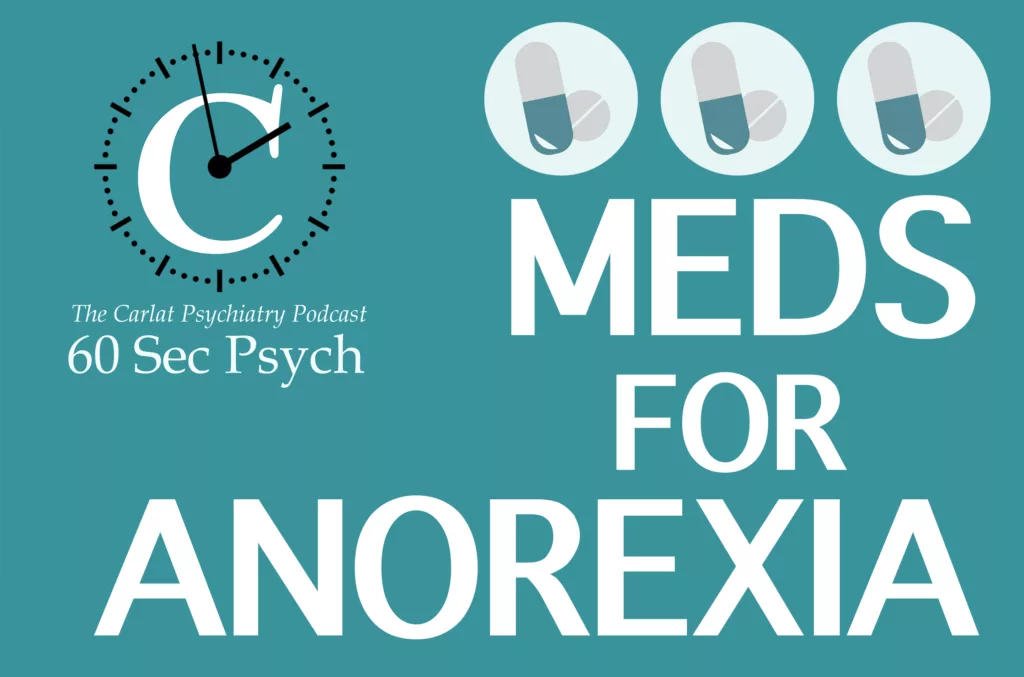People with anorexia usually don’t want to take medications, but does pharmacotherapy even work? Not at all, concludes Emanuele Cassioli and colleagues in this new meta-analysis. [Link]
Published On: 6/2/2020
Duration: 1 minute, 51 seconds
Transcript:
People with anorexia usually don’t want to take medications, but does pharmacotherapy even work? Not at all, concludes Emanuele Cassioli and colleagues in this new meta-analysis. They don’t raise weight, and they don’t change cognitions. That goes for antidepressants, antipsychotics, and olanzapine ─ the most studied of the drugs. Not only did they not help the anorexia, they did nothing for comorbidities like depression and anxiety, with the possible exception of citalopram which helped depressive and obsessive-compulsive symptoms.
Though disappointing, these conclusions make sense. We don’t even know which neurotransmitters to target in anorexia, and the malnourished state might render some medication ineffective. A 2018 trial that did find better effects with medications after weight was restored.
The authors found one ray of hope in lithium. In a very small randomized trial from 1981 ─ 8 patients ─ lithium improved weight gain with a medium effect size, at a serum level of 1.0. Another mineral ─ Zinc ─ was left out of this meta-analysis but does have a positive randomized controlled trial in 35 patients with anorexia at a dose of Zinc gluconate 100mg.
Anorexia is notoriously hard to study. Only 1 in 10 patients are willing to sign the consent forms, which warn about the possibility of weight gain, and once enrolled the drop out rates are very high.
Got feedback? Take the podcast survey.


_-The-Breakthrough-Antipsychotic-That-Could-Change-Everything.webp?t=1729528747)



